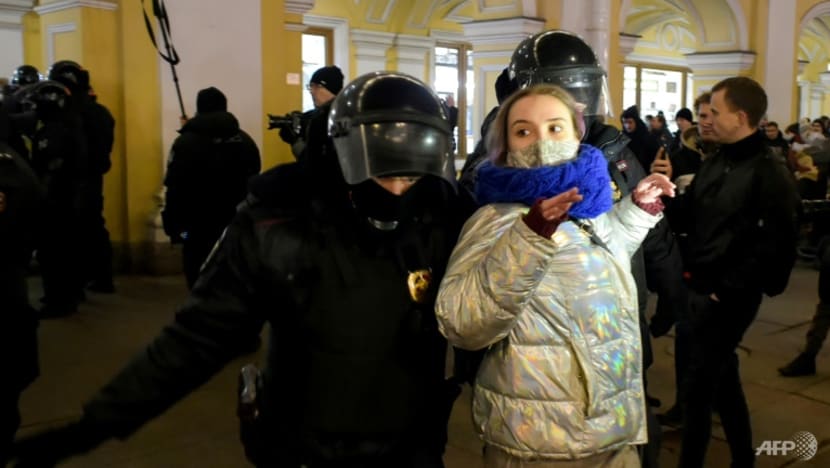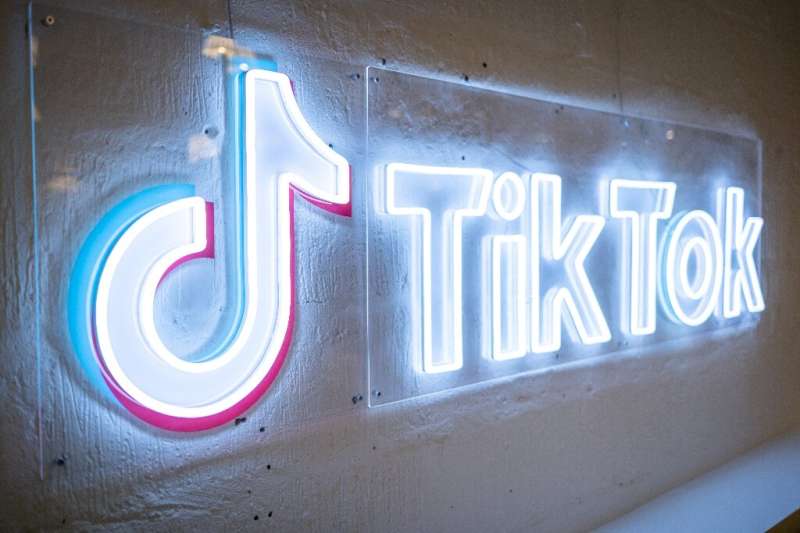Turkey inflation woes pit tenants against landlords


![]()
Disputes between homeowners and tenants have risen sharply in Turkey after annual inflation reached nearly 50 percent in January (AFP/Amir MAKAR)
Remi BANET
Wed, March 2, 2022
Kicked out in the middle of a harsh Turkish winter, 30-year-old Erdem Yilmaz calculated that he spent two and a half months' salary to urgently relocate to a new home in Istanbul.
The father of a two-year-old is not the only Turk in this situation after last year's currency crisis.
Disputes between homeowners and tenants have risen sharply in recent months in Turkey after annual inflation reached nearly 50 percent in January, the highest since April 2002 and may well reach a new peak on Thursday when new monthly data will be published.
In the same period, rents have exploded by 85 percent in Istanbul and by 69 percent at the national level, according to analysis by Bahcesehir University.
But salaries have not risen at the same pace, with most increasing by between 30 and 50 percent on average in January.
"We shouldn't have had to leave," lamented Yilmaz, who works as a receptionist, upset at his former landlord who claimed he wanted the property back for his son.
"He harassed us. My family had no peace," he added.
Yilmaz is even angrier because he said the landlord's son did not move into the apartment.
"I saw an advert (for the flat) on the internet a week after we left," he said, showing a photo of the advert.
The rent is now 2,600 Turkish liras ($190, about 170 euros), compared with the 1,100 liras ($80) paid by Yilmaz.
- Rising legal disputes -
To add insult to injury, Yilmaz's new home will cost him 2,000 liras ($146), half of his salary, and is located in "a remote corner, in an old building that is hard to heat and without a lift," he said.
Yilmaz's dispute has not hit the courts but legal cases between tenants and property owners are now the biggest single issue processed by Turkish courts.
They represent 20 percent of cases, compared to 10 percent a year ago, according to financial daily Dunya.
President Recep Tayyip Erdogan's unorthodox policies, as well as the weakening lira are contributing to inflation.
Central banks normally raise rates to tame inflation but Erdogan vehemently opposes high interest rates, claiming they are the "mother and father of all evil" and cause high inflation.
The Turkish lira lost 44 percent of its value against the dollar last year.
AFP spoke to 12 tenants who described being forced to leave their apartments in the same way as Yilmaz, or who have suffered rent increases of over 100 percent, five times higher than the legal limit in Turkey.
Turkish law stipulates that, under a tenant's contract renewed in February, a landlord cannot increase the monthly rent above 22.6 percent, a figure calculated using base inflation.
The law also restricts evictions, but tenants said they gave in to pushy or threatening landlords.
In January, an Istanbul man in his 90s was filmed by a neighbour using an axe to break down his tenants' door after they refused to pay their rent, which suddenly rose from 1,200 to 4,000 liras.
"The rise in rents is pushing property owners to seek the recovery of their homes to put them back on the market" at distinctly higher prices, according to lawyer Hanife Emine Kara, a specialist in real-estate law who has seen the number of cases rise.
- 'Illegal and opportunistic' -
Property owners pushing for three-figure rent increases argue that official inflation data does not reflect the reality, a claim supported by some independent Turkish economists who say inflation reached over 110 percent in January.
"We live in a period in which owning a home or renting cheap accommodation is a luxury," said Mehmet Bulent Deniz, head of the Turkish Consumers Union Federation.
However, some landlords try to find a balance.
"We have agreed to 35-percent increases. There needs to be a happy medium," said Hakan Yildiz, who owns three properties in Istanbul.
Some tenants, such as Emrullah Comran, refuse to accept, on a matter of principle.
In January, Comran's landlord wanted to increase his rent by 58 percent.
"I'm in a good financial situation, I could have paid but I refused because they did this in an illegal and opportunistic manner," said the 30-year-old, who runs a small metalworking business in Antalya, southern Turkey.
"We have 12 employees and we gave them a pay rise of 45 percent on average this year. But no one has received a 58-percent raise. Nobody," he insisted.
In response to his landlord, Comran sent his rent by wire transfer with an increase he set himself.
"The official rate is 22.6 percent, so I went a little above that, to 23 percent," he said.
"I have not heard back from them yet."
rba/ach/raz/fo/kjm







 “L’empire des lumieres” (1961) by René Magritte.Credit...C. Herscovici/Artists Rights Society (ARS), New York; via Sotheby's
“L’empire des lumieres” (1961) by René Magritte.Credit...C. Herscovici/Artists Rights Society (ARS), New York; via Sotheby's “Nymphéas” (1914-17) by Claude Monet.
“Nymphéas” (1914-17) by Claude Monet.






